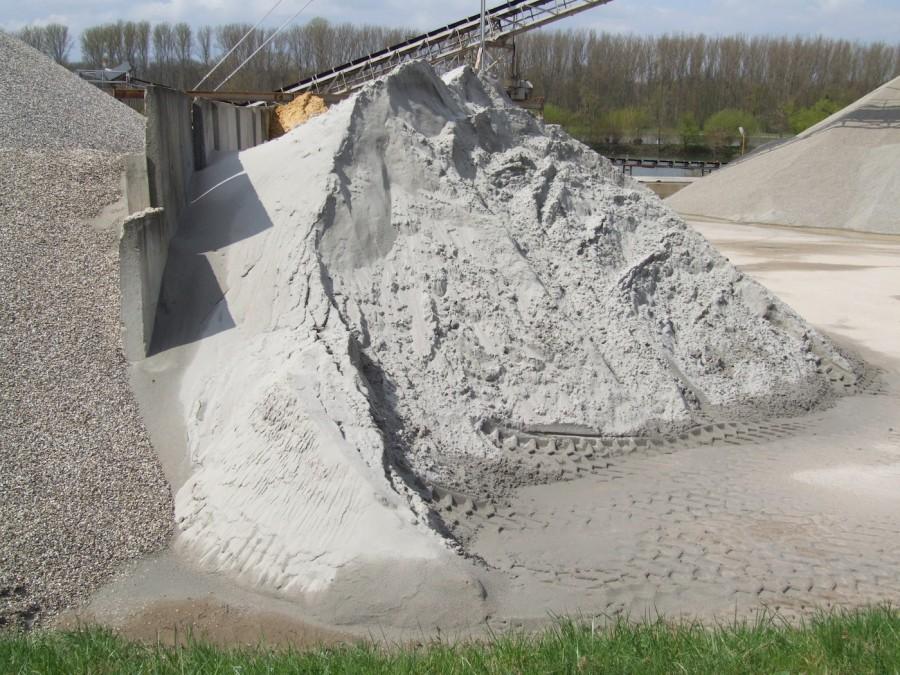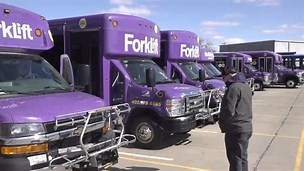Mining for sand in fracking process holds risks for communities, study says
October 1, 2014
By Neela Banerjee
WASHINGTON—As a domestic energy boom driven by hydraulic fracturing spreads, so could strip-mining for sand needed for the controversial production process, introducing risks to water, air, public health and property values, according to a report issued Thursday.
Sand mining has exploded across the bluffs and farmland of western Wisconsin, touching off a groundswell of resistance from the region’s small towns that seek to better control the process and its effect. The demand for sand could open up areas of a dozen other states to sand mining too, from Maine to Iowa, including northern Illinois, according to the report.
Hydraulic fracturing, or fracking, involves high-pressure injection of millions of gallons of water laced with chemicals and sand into geological formations to unlock oil and gas trapped there. The sand props open the fissures created by the fracturing process and is porous enough to let oil and gas pass through and go up the well.
Produced by the Civil Society Institute, based in Boston, the Environmental Working Group and Midwest Environmental Advocates, the report is based on state and local information, mostly from Wisconsin and Minnesota, peer-reviewed research and interviews with residents who live near mines. There are 164 working sand mines and related facilities in the two states, with 20 more on the drawing board, said Grant Smith, one of the authors.
Mining companies get the sand by blasting chunks off the region’s rolling hillsides and washing away the other soil and rock. Nearly every step of the process poses problems for surrounding communities, the authors wrote.
“The rapid expansion in the United States of oil and shale gas drilling, including hydraulic fracturing, has a hidden side filled with problems: the mining of the special sand that is essential to fracking a drilled well,” Smith said.
Washing the sand to separate it from debris uses prodigious amounts of water, often more than the municipal water systems in the counties where mines are located, the report found.
Mining operators use a chemical, polyacrylamide, to get the debris to clump and separate from the sand. The chemical can break down into acrylamide, a carcinogen, that can enter water sources from wastewater ponds at mine sites, the report said. It remains unclear whether states where sand mining occurs monitor for the formation of acrylamide and its possible migration to water sources.
Silica dust released from blasting and picked up by the wind from piles of washed sand could pose health risks to nearby residents, the report said. Fine airborne particles can irritate people’s lungs and heighten the risk of respiratory ailments. Until now, scientists and regulators have focused on the threat of silica dust at workplaces such as mines and fracking sites. Little research has been done into the presence of silica dust in communities near mines.
Nearly 58,000 people live within half a mile of sand mines and related facilities, Environmental Working Group found.
The Wisconsin Department of Natural Resources declined to comment as it had not had a chance to review the report. Minnesota regulators did not comment.
Industry and state officials have said that mining has brought millions of dollars into the state and into rural communities in particular. In 2012, the Wisconsin Center for Investigative Journalism estimated that sand mining for fracking would create about 2,800 jobs, based on predictions developed by the Wisconsin Economic Development Corp.
The oil and gas industry is expected to use about 95 billion pounds of sand for fracking this year, a 30 percent increase from last year, said the report, citing industry analysts. Wisconsin is expected to produce 36 million tons of sand this year and 50 million tons by about 2017, the report estimated.
©2014 Tribune Co.
Visit Tribune Co. at www.latimes.com
Distributed by MCT Information Services
















